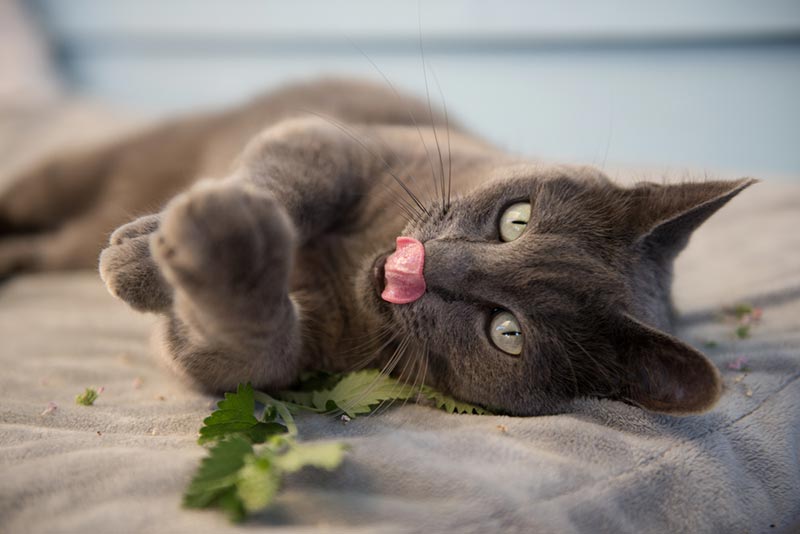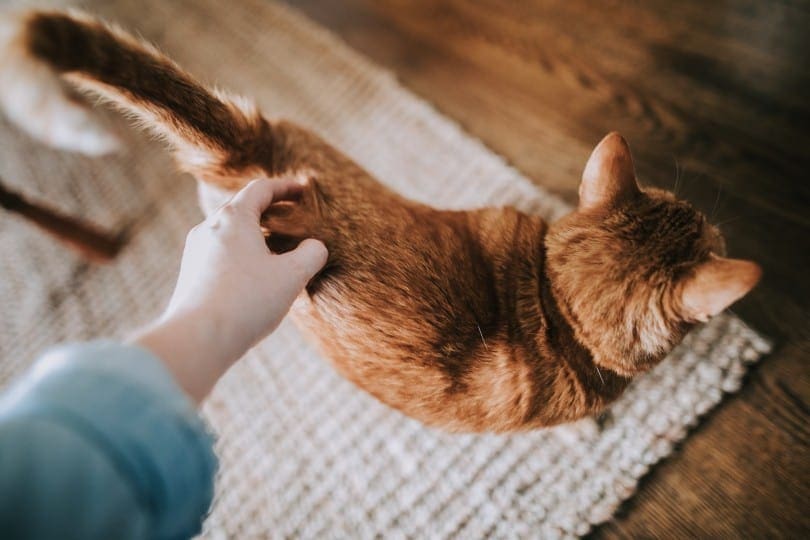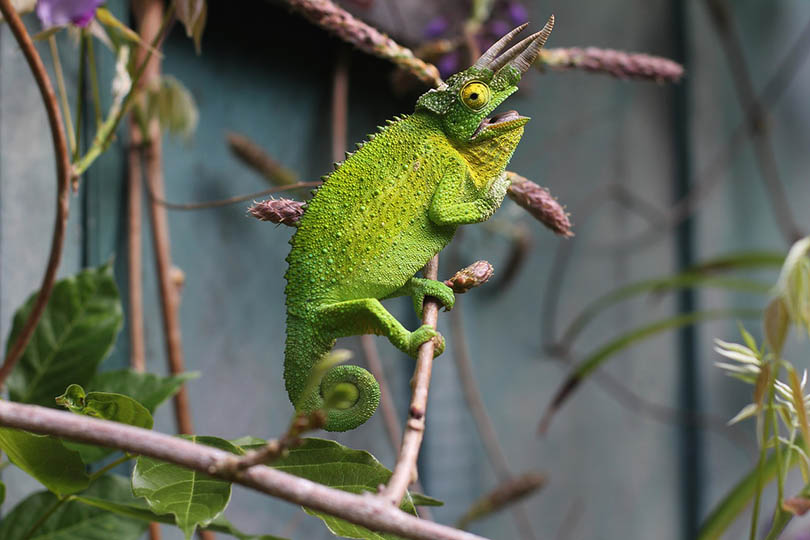VET APPROVED

The information is current and up-to-date in accordance with the latest veterinarian research.
Learn more »Click to Skip Ahead
From catnip mice to catnip-infused litter, the list of cat products containing this irresistible herb is seemingly endless. If you’re a cat owner who’s witnessed the rapturous response of your kitty in the presence of catnip, you can certainly testify to its appeal! But have you ever wondered why cats like catnip so much?
Cats like catnip because it contains a chemical that mimics sexual pheromones and produces intense feelings of euphoria. Many owners joke that their cats get “high” on catnip, but that’s not an entirely accurate description of what’s happening. Keep reading to learn more about how catnip attracts cats and why some cats don’t seem to respond to it at all.

Catnip: The Basics
Catnip (Nepeta cataria) is an herb from the mint family. The plant is originally from Europe and Asia but is now also grown throughout North America. Besides being popular among cats, humans use the herb in tea and as a seasoning.
The catnip plant is easy to grow and will return year after year. Many cat owners choose to cultivate their own, much to the delight of their feline companions.
Why Cats Like Catnip: The Science
Nepetalactone is the chemical in catnip that is responsible for the wild reactions. A study found that this substance acts as a stimulant in cats, increasing endorphins and feelings of euphoria. It works by activating a reward system in the feline brain. Basically, the chemical seems to mimic the pheromones produced when female cats are in heat, and many of the observed behaviors are similar. When cats rub their faces in catnip, they get the chemical on their faces and in their noses. The scent of nepetalactone triggers that sensory reaction in the cat’s brain.
Interestingly, the study also found that catnip oils have natural insect-repellent properties, which may help cats that rub on the plant from getting mosquito bites. Besides catnip, nepetalactone is found in the silvervine plant, which is related to the kiwi and often used similarly to catnip.
The strongest effects of catnip usually last about 10 minutes in cats. Reactions can include drooling, hyperactivity, an enhanced state of relaxation, or even growling and aggression. After the effects wear off, cats will be immune to catnip for the next hour or two.
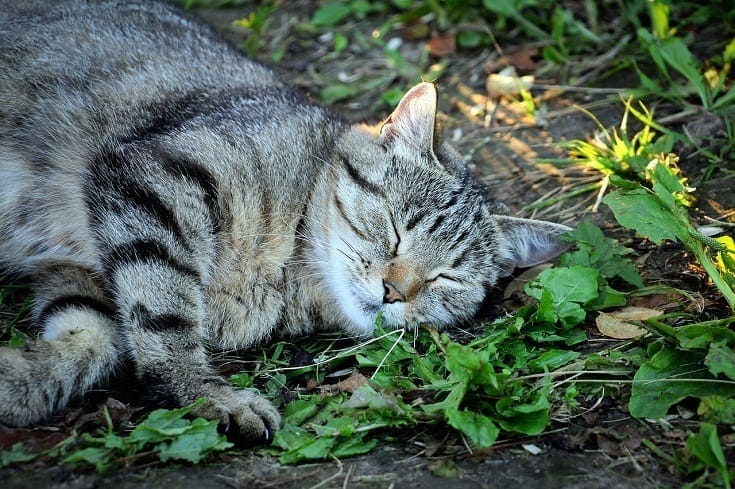
Do All Cats Like Catnip?
If you’ve tried offering catnip to your cat only to find they either ignore it or dislike it, don’t worry, there’s nothing wrong with your kitty! Multiple studies have found that as many as one out of every three cats has no reaction or response to catnip. About 20% of cats don’t respond to silvervine either.
Whether your cat responds to catnip appears to be an inherited trait. Even large wild cats like lions, jaguars, leopards, and snow leopards can show reactions to catnip. However, most tigers show no response to the herb.
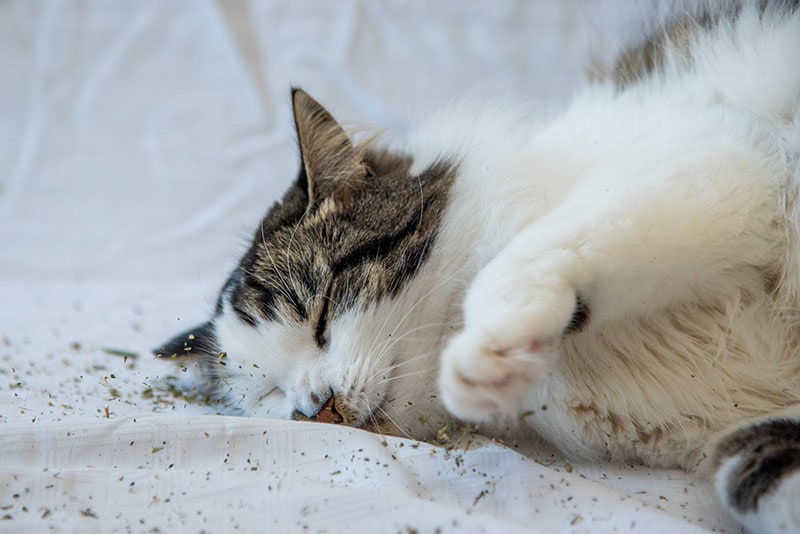
Is Catnip Bad for Cats?
Since a cat’s response to catnip is so often compared to that of an addictive drug, it’s natural to wonder whether catnip is addictive or bad for felines. Thankfully, catnip has no known long-term impacts on a cat’s brain or health, nor is it addictive; in fact, habitual use may lead to a reduced response over time.
That said, cats that lick and swallow large amounts of catnip may find themselves with an upset stomach. It’s also probably not a good idea to keep offering catnip to kitties that have extreme or aggressive responses. This is especially true if you have multiple cats whose reaction to catnip involves getting into fights with each other! If an accident happen and your cat ingests excessive amount of catnip, it is best to contact a veterinarian.
How to Use Catnip
Besides giving your cat a rotation of catnip toys, there are several other ways you may find the herb useful. Silvervine sticks are commonly sold as chew objects. You can also use catnip and catnip products as training tools.
Maybe you need to teach your new kitten to use the new cat tree or redirect an older cat’s scratching from the sofa to the scratcher. Perhaps you’d like your cat to start sleeping in their own bed rather than yours. A nice sprinkle or spray of catnip could be just the thing to draw your cat’s interest toward their tree or bed.


Final Thoughts
Watching a cat react to catnip can be wildly entertaining—one of the sneaky pleasures of cat ownership. We hope you’ve enjoyed learning more about the science behind why cats like catnip.
Why not go get your kitty some new catnip toys to celebrate your newfound knowledge? If your cat happens to be that one in three that don’t care for catnip, don’t worry, as there are plenty of other toys and treats out there for them!
- You may also want to read: Catnip Tea for Cats
Featured Image Credit: Anna Hoychuk, Shutterstock
